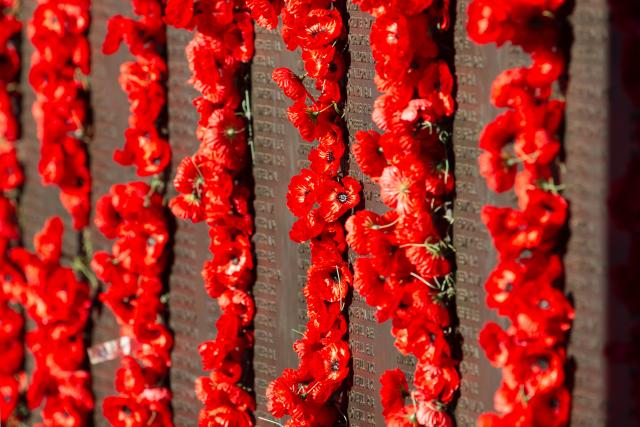
Liam McNally
Ballan RSL has been “saved” and is gearing up for its biggest ANZAC Day yet, with dawn services in Ballan, Myrniong, and for the first time, Blackwood.
Ballan RSL president Pippa Morris said they’re expecting around 400 people at the Ballan event, which will begin with a Dawn Service in Mclean Park from 6am, followed by a Gunfire Breakfast, and at 12.30 a March from the Ballan RSL to the local Cenotaph for an afternoon service.
She said this year’s service will also honour animals that have served in the Australian Defence Force (ADF) – students from four local primary schools will give speeches on animals in conflict, and the march will have Australian Light Horse re-enactors and a donkey, all with backwards boots in the stirrups to represent riders that lost their lives.
Ms Morris said the Ballan branch has gone through a rebuild in the last seven years, which has seen the branch go from considering closure with nine members in 2016, to almost 120 current members.
“We’ve built significantly healthier relationships with the community,” she said.
Along with being more visible in the community, Ms Morris said the club has been taking on “significant” projects, publishing volumes of names and biographies of all service people from the area with the Moorabool Historical Society, restoring the RSL Hall, upgrading and restoring the Myrniong War Memorial, and restoring a century-old Avenue of Honour in Barry’s Reef.
Ballan RSL is also currently in consultation with council to upgrade Ballan Cenotaph and repurpose trees that currently run along Inglis Street as an Avenue of Honour.
Mrs Morris said the RSL is also hoping to reach more veterans, including from police and fire brigades, in the shire who need support.
“These projects have been about the RSL reaching out into the community, looking for areas of our concern, building partnerships and re-establishing the RSL as a relevant entity,” she said.
“Over the years, particularly post Vietnam War, veterans were fairly forgotten about in Australia… interest in veterans and commemorative services fell away significantly,” she said.
“But that has a fallout effect, it has an impact on government policy, welfare, opportunities for veterans, mental health, their ability to get work… bringing back to life the commemorative services keeps veterans in the conscience of our communities which has an impact on outcomes for veterans.
“If we don’t remember these things, or these people, there’s a significant loss of history and the cultures of the communities we live in. Understanding our communities history is needed to understand our present culture, and to be able to build on that for the future.”






